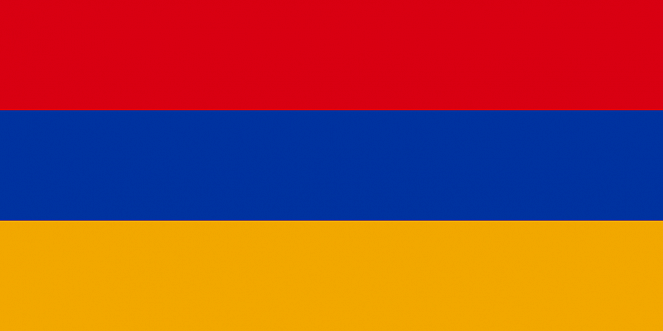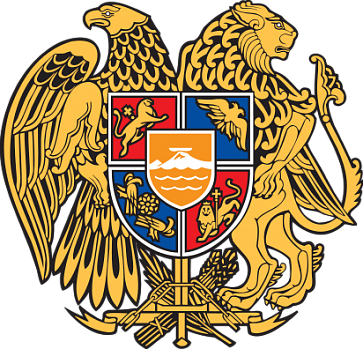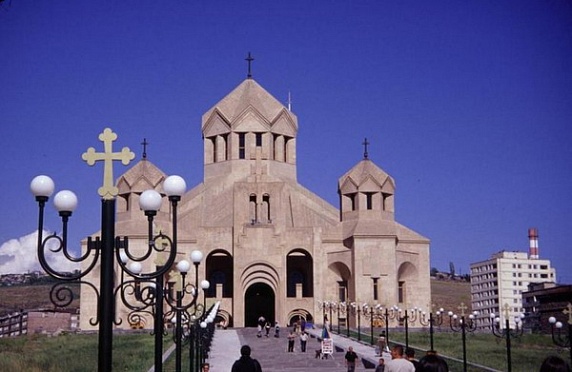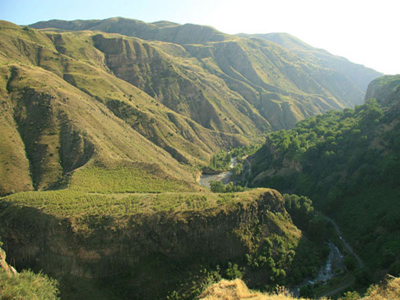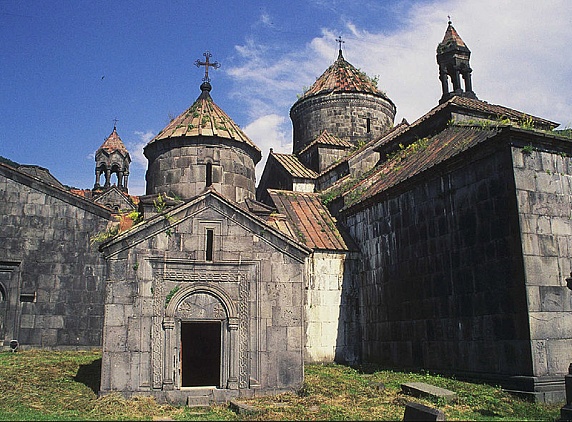 República da Arménia
República da Arménia
Foreign Minister Sergey Lavrov’s statement and answers to media questions following talks with Foreign Minister of the Republic of Armenia Ararat Mirzoyan, Moscow, August 31, 2021
Ladies and gentlemen,
We held talks with my new colleague from the Republic of Armenia Ararat Mirzoyan. We know Mr Mirzoyan quite well as he previously served as Speaker of the National Assembly of the Republic of Armenia and actively contributed at that position to the development of our allied strategic relations. I believe that at this new post, Mr Mirzoyan will ensure a consistency in our contacts with the new government of Armenia, which was formed after the recent parliamentary elections. Our relations are progressing steadily. President of Russia Vladimir Putin and Armenian Prime Minister Nikol Pashinyan met three times this year and had over a dozen telephone conversations including one just the other day. The Russian and Armenian prime ministers had two in-person meetings. The intergovernmental commission on economic cooperation at the deputy prime minister level is actively operating
We maintain intensive contacts between most ministries and agencies. The issues being discussed range from the Eurasian economic agenda, security and labour migration to education, innovation and space technologies. I know that interparliamentary cooperation will continue to increase after Armenia’s new parliament gets down to work following the June elections, and after the new State Duma is elected in September. We agreed to prepare commemorative events for 2022 to celebrate the 30th anniversary of diplomatic relations and 25 years of the Treaty of Friendship, Cooperation and Mutual Assistance. We talked about strengthening our business partnership via stepping up ties between business leaders and between Russian and Armenian regions. In this regard we have an efficient tool – the bilateral inter-regional forum; an eighth session has been scheduled, which we intend to hold this year depending on the epidemiological situation.
We are also preparing to hold the 7th Russian-Armenian Youth Forum.
We have agreed to continue our cooperation on countering the COVID-19 pandemic. We have already supplied several batches of the Sputnik V vaccine to Armenia, and we are now expecting some new batches. We have agreed that this cooperation will continue to develop on a system-wide basis between the relevant medical institutions.
We will help expand contacts between educational and research organisations. We have decided to expand the exchange programmes for university faculty and students. Our partners have reaffirmed their interest in further supporting the Russian language in their country. We will help expand these capabilities.
We have exchanged opinions on international matters, on which our positions coincide or are very close. We have reaffirmed our commitment to closely coordinate the efforts of our delegations at the UN, the OSCE and also other platforms. We praised the level of our cooperation within the Commonwealth of Independent States (CIS), the Collective Security Treaty Organisation (CSTO) and the Eurasian Economic Union. Armenia is to chair the CSTO as of mid-September. Our partners have informed us about their plans in the context of the Armenian chairmanship’s programme. We will actively facilitate their effective implementation. Our common interest is to further boost the CSTO’s effectiveness and its prestige on the international arena.
We focused on tasks to strengthen peace, security and stability in the South Caucasus. We reviewed the implementation of trilateral agreements by the leaders of Russia, Armenia and Azerbaijan of November 9, 2020, and January 11, 2021, in great detail. These agreements made it possible to stop the conflict and to launch its political settlement. We have agreed to continue closely monitoring efforts to eliminate mutual irritants in relations between Yerevan and Baku, including the final resolution of the matter of releasing Armenian prisoners and the transfer of minefield maps. We have reaffirmed the fact that the activity of the OSCE Minsk Group’s co-chairs remains highly relevant.
We have exchanged opinions on the situation along the Armenian-Azerbaijani border outside the Nagorno Karabakh conflict zone. We assume that it is necessary to address all matters by political and diplomatic methods alone, and that a lasting settlement is only possible through the border’s delimitation and demarcation. The relevant initiative of President of Russia Vladimir Putin is well-known. Today, we discussed the efforts to ensure its speedy implementation. We have reaffirmed our readiness to facilitate this process in every way.
We are satisfied with the work of the Trilateral Working Group to De-Block Transport and Economic Ties in the South Caucasus, co-chaired by Russian, Azerbaijani and Armenian Deputy Prime Ministers. The Group was established on January 11, 2021, by a decision of the three countries’ leaders. We hope that the activity of this mechanism and the de-blocking of all lines of communication will help facilitate the South Caucasus economic recovery and ensure reliable foundations for the political settlement and the entire region’s prosperity.
We are satisfied with the results of the talks, and I am grateful to Mr Mirzoyan and his team for our cooperation. We will continue our work in line with agreements that have been reached between the President of the Russian Federation Vladimir Putin and the Prime Minister of the Republic of Armenia.
Question: As Foreign Minister of an OSCE Minsk Group co-chairing country, what is your position on the resumption and promotion of the Nagorno-Karabakh peace process? Has an Armenian-Azerbaijani meeting been planned in any format?
Sergey Lavrov: Concerning any meetings between the Armenian and Azerbaijani sides, this question needs to be addressed to Armenia and, accordingly, to Azerbaijan.
As for our position, we are fully committed to the documents approved by our leaders in a trilateral format on November 9, 2020, and January 11, 2021. I assume you are referring not so much to resuming the process than to fulfilling what has already been signed – an agreement to ensure reliable security and start restoring trust. The trilateral working group at the deputy prime ministers’ level on unblocking transport and economic ties plays a special role here. This will be an important development and will allow the parties to be more constructive about the process.
We believe that it is vital to encourage humanitarian ties at all levels. As was already mentioned, both sides need to substantially moderate their rhetoric. This should create the right conditions for a final and full-fledged settlement; I have no doubt about this.
Question: Azerbaijan has not yet fulfilled paragraph 8 of the November 9, 2020, Statement on the all-for-all exchange of prisoners of war, hostages and other detainees. In fact, the Azerbaijani side is hampering the agreements on this important topic, which could help pave the way for discussing other matters. Do you see any solution for this acute humanitarian issue, which has brought suffering to so many Armenian families?
Sergey Lavrov: To be precise, the November 9, 2020, Statement referred to the release of the prisoners of war who were in captivity at that time. Azerbaijan is currently holding a significant part of the group of Armenian service members who were there at the end of November, after the Statement entered into force including an agreement on ending any hostile actions.
In his contacts with the leadership of Azerbaijan, with President Ilham Aliyev, President of Russia Vladimir Putin urges them to release everyone without any conditions; we are sending this signal to our Azerbaijani colleagues at other levels as well. This would be a landmark manifestation of the trust that is now lacking, and an important humanitarian step.
We will continue to speak up from this position. But the final decision is not up to us. We strongly support any confidence-building measures (including Armenia’s reciprocal step to transfer the maps of minefields). We believe that the parties could start taking such reciprocal steps (not necessarily in conjunction, but simply in good faith) to reach out to their partner, a neighbour they will have to continue coexisting with on the same land, breathing the same air. We will do our best to promote this.
Question: The Taliban declared a definitive victory in Afghanistan as soon as the last American soldier left the country. What approach do Russia and Armenia share, as members of the CSTO, regarding the Afghanistan issue?
Sergey Lavrov: The approach in favour of peace, prosperity and security for the Afghan people in this region and the decisions that would make it impossible for terrorists, drug traffickers and other members of organised crime to continue using the territory of Afghanistan for their ends. The common CSTO approach will be formulated by the time the Dushanbe summit takes place in mid-September. This topic will also be discussed at the Shanghai Cooperation Organisation (SCO) summit, which will also be held in the capital of Tajikistan following the CSTO summit.
Question: Russia has put Foreign Minister of Ukraine, Dmitry Kuleba, on a sanctions list, there is no truce in sight in eastern Ukraine, and neither the Normandy format talks, nor the trilateral Contact Group have yielded any meaningful results. Do you expect any progress, or have relations hit an impasse that will last until Ukraine gets a new government?
Could you comment on the position stated by Azerbaijan according to which a peace treaty between Armenia and Azerbaijan must include the recognition by Yerevan of Azerbaijan’s territorial integrity?
Sergey Lavrov: The second question is not for me. This question concerns the relations between Armenia and Azerbaijan. I would refrain from commenting on this issue. Let me only note that we will welcome any steps that help Armenia and Azerbaijan overcome their differences and reach mutual understanding.
As for the Ukraine crisis, every successive regime is driving the country deeper and deeper into an impasse. I do not really know what to expect. As for sanctions, one of the main problems for the current Ukrainian government is the consistency and persistence with which it sanctions its own citizens. The Ukrainian National Security and Defence Council issues sanctions lists and designates Ukrainian nationals. Not one of our Western colleagues has paid attention to this outrageous violation of fundamental human rights.
As for the future of the Minsk process, even though every successive Ukrainian government has been trying to drive the settlement process deeper into an impasse, we insist that this manoeuvring should cease. The same demand should come from Kiev’s Western patrons, Berlin and Paris, who, by acting as the co-authors of the Minsk agreements, have placed their authority at stake. A lot depends on the United States, which seems to be the only country Vladimir Zelensky is listening to, even if not on all matters.
During German Chancellor Angela Merkel’s visit to Moscow, as well as during a telephone conversation between President of the Russian Federation Vladimir Putin and President of France Emmanuel Macron, we discussed all these issues, highlighted their urgency and drew the attention of the co-authors of the Minsk agreements to the fact that Kiev persists in adopting laws that directly undermine the performance of the key provisions set forth in the Package of Measures. This also applies to the special status of territories where the Donetsk and Lugansk people’s republics were proclaimed, as well as the Russian language, the holding of local elections following a timeframe coordinated with Donetsk and Lugansk (while Kiev’s latest legislative initiatives expressly forbid this), and many other things, including the amnesty.
It was for this reason that we told Berlin and Paris that it was time that they made up their minds, whether they will continue tolerating the way Vladimir Zelensky and his team have been ignoring their obligations, or make use of their influence and power.
